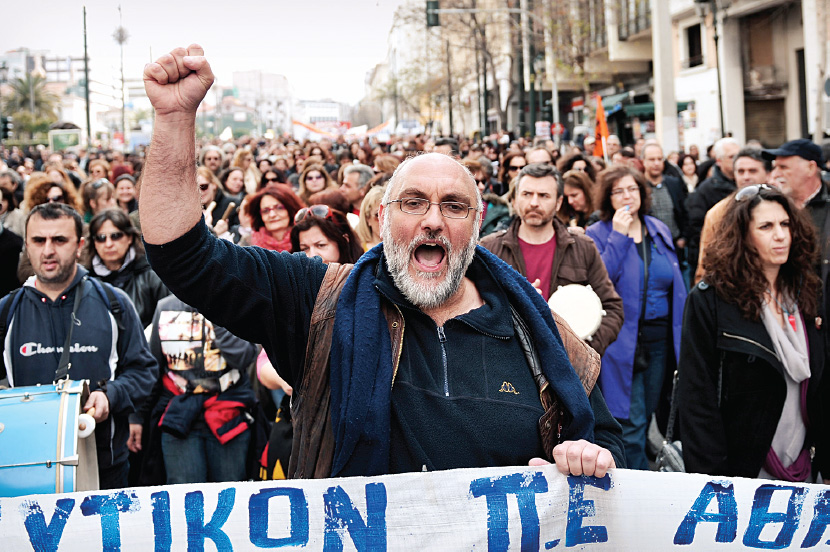The Global Recession and the Viability of the Eurozone
While chaos and change roiled the Muslim world, economic crisis sapped growth and political unity in Europe and North America. In 2008 the United States entered a deep recession, caused by the burst of the housing boom, bank failures, and an overheated financial securities market. The U.S. government spent massive sums in attempts to recharge the economy. Banks, insurance agencies, auto companies, and financial services conglomerates received billions of dollars in federal aid. By 2013 the economy showed modest improvement, but a weak housing market and high unemployment continued to slow full recovery.
The recession quickly swept across Europe, where a housing bubble, high national deficits, and a weak bond market made the crisis particularly acute. One of the first countries affected, and one of the hardest hit, was Iceland, where in October 2008 the currency and banking system collapsed outright. Other countries followed — Ireland and Latvia made deep and painful cuts in government spending to balance national budgets. By 2010 Britain was deeply in debt, and Spain, Portugal, and especially Greece were close to bankruptcy. Greek political leaders struggled to implement a painful neoliberal austerity plan — which meant raising taxes, privatizing state-owned businesses, reforming labor markets, and drastically reducing government spending on pensions and other popular social benefits. All these measures were required before Greece could receive financial aid from the IMF, the European Common Bank, and the European Union. In the summer of 2012 Greece was still flailing, prompting speculation that it might leave the Eurozone, followed, perhaps, by Portugal or even Spain and Italy.
This sudden “euro crisis” put the very existence of the Eurozone in question. The common currency grouped together countries with vastly divergent economies. Germany and France, the zone’s two strongest economies, felt pressure to provide financial support to ensure the stability of far weaker countries, including Greece and Portugal, though they did so with strings attached. As with Greece, recipients were required to reduce deficits through austerity measures. Even so, the transfer of monies within the Eurozone angered the citizens of wealthier countries, who felt they were being asked to subsidize countries in financial difficulties of their own making. Such feelings were particularly powerful in Germany, forcing Chancellor Angela Merkel (r. 2005– ) — the nation’s first woman chancellor — to move cautiously in providing financial stimulus to troubled Eurozone economies.
If bailouts troubled wealthy Germans, deep cuts to benefits coupled with ongoing hardship from the recession infuriated the citizens of poorer countries. In Greece, unemployment hit a record 25 percent in 2012, and more than half of young adults lacked jobs. Even in Spain — the Eurozone’s fourth-largest economy — one in four adults was unemployed and housing prices had dropped 25 percent since 2008.13 As governments cut popular social programs, demonstrators took to the streets to protest declining living standards and the lack of work; in Athens, protests large and small were almost a daily occurrence in autumn 2012.
The euro crisis shook general faith in European unity, especially among conservatives. In Britain in January 2013, Conservative Party leader and prime minister David Cameron (r. 2010– ) pledged to hold an “in/out” popular vote on Britain’s membership in the EU within five years. On the far right, the crisis generated even stronger anti-EU sentiment and anti-immigrant extremism. In Hungary, a far-right political party demanded that the nation leave the EU immediately; in Greece, the extreme-right Golden Hand Party climbed to 12 percent in popularity polls even as party thugs carried out violent attacks on the country’s undocumented immigrants. In early 2013 Europe’s mainstream leaders were still committed to the euro and the EU, but more countries were heading into recession and unemployment was still rising. It remained to be seen whether economic troubles would persist and lead to political disintegration.
